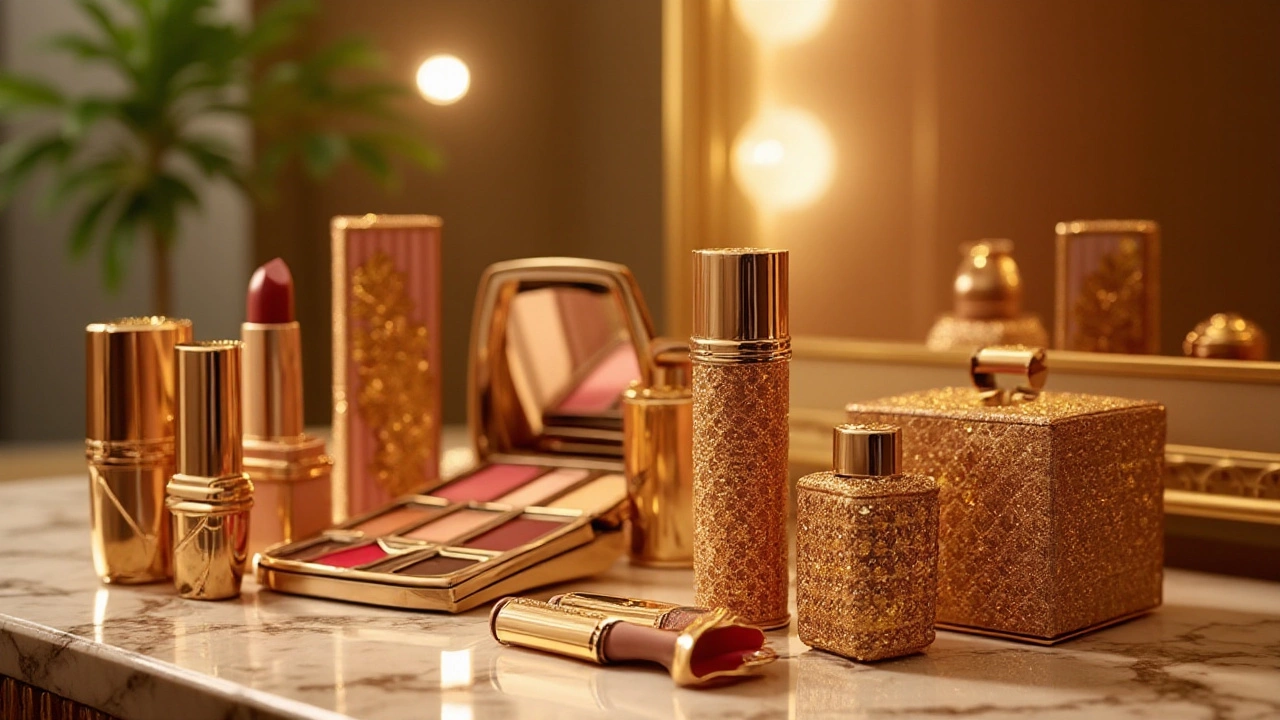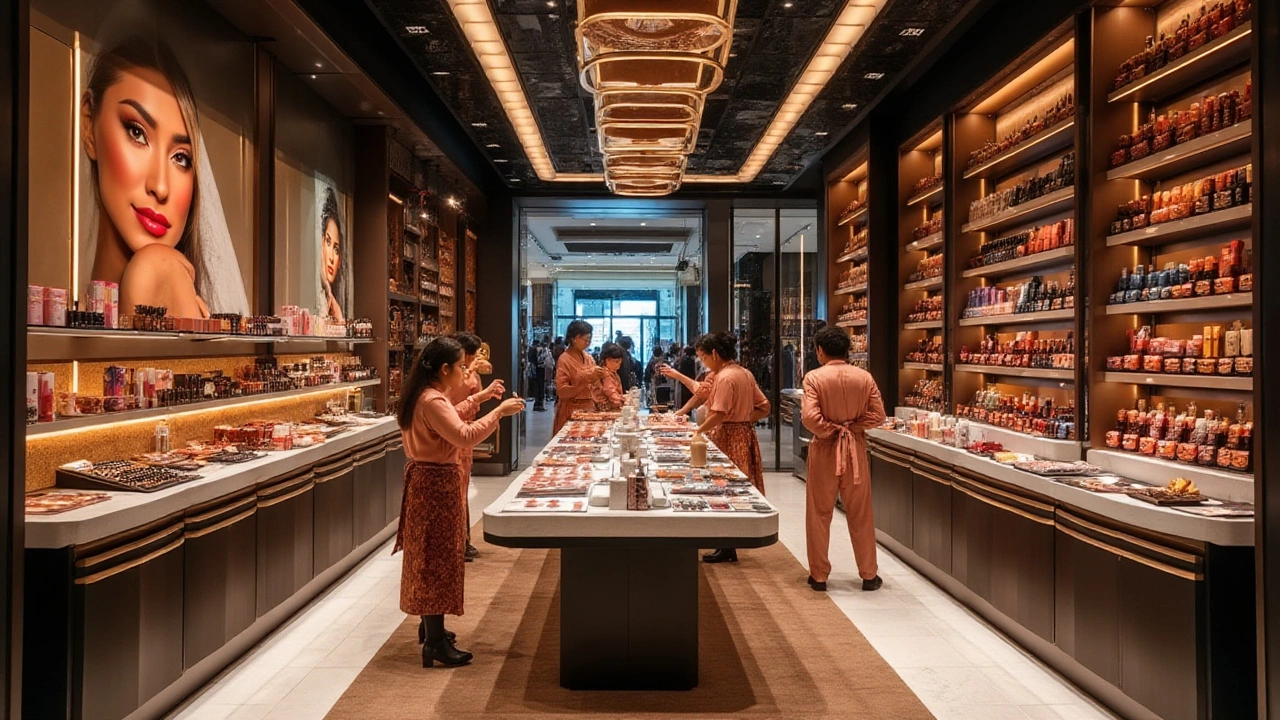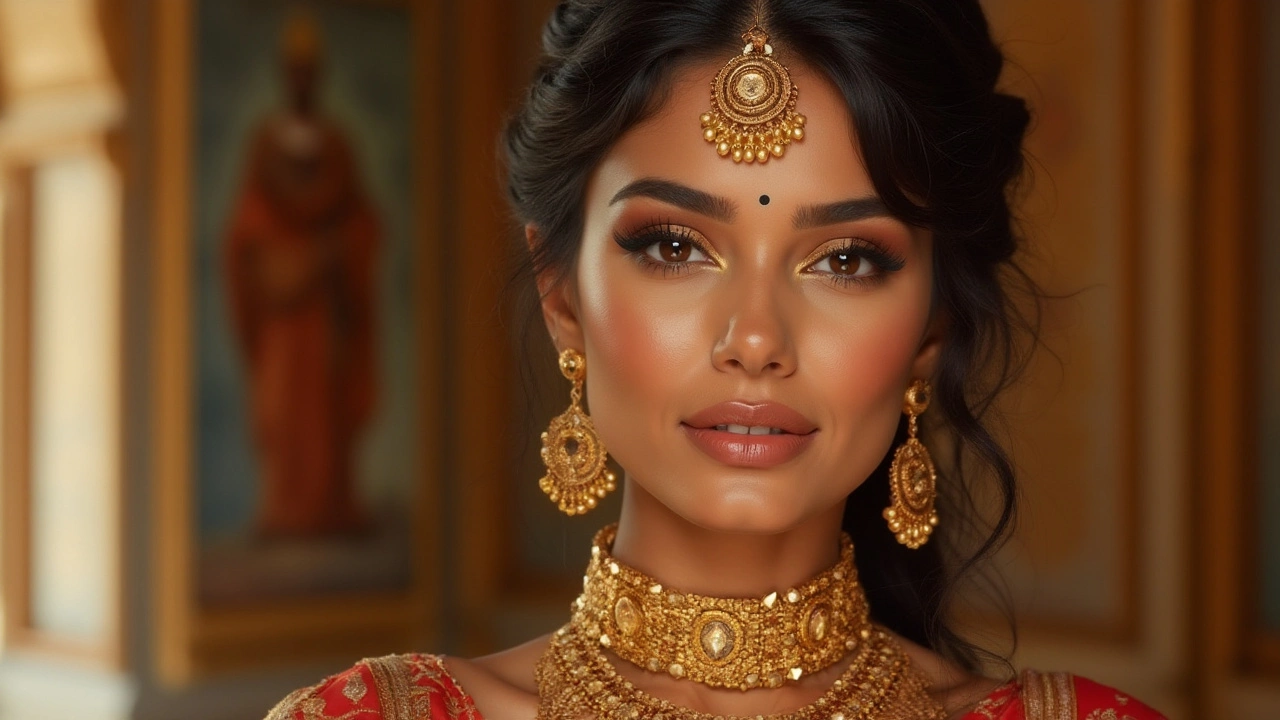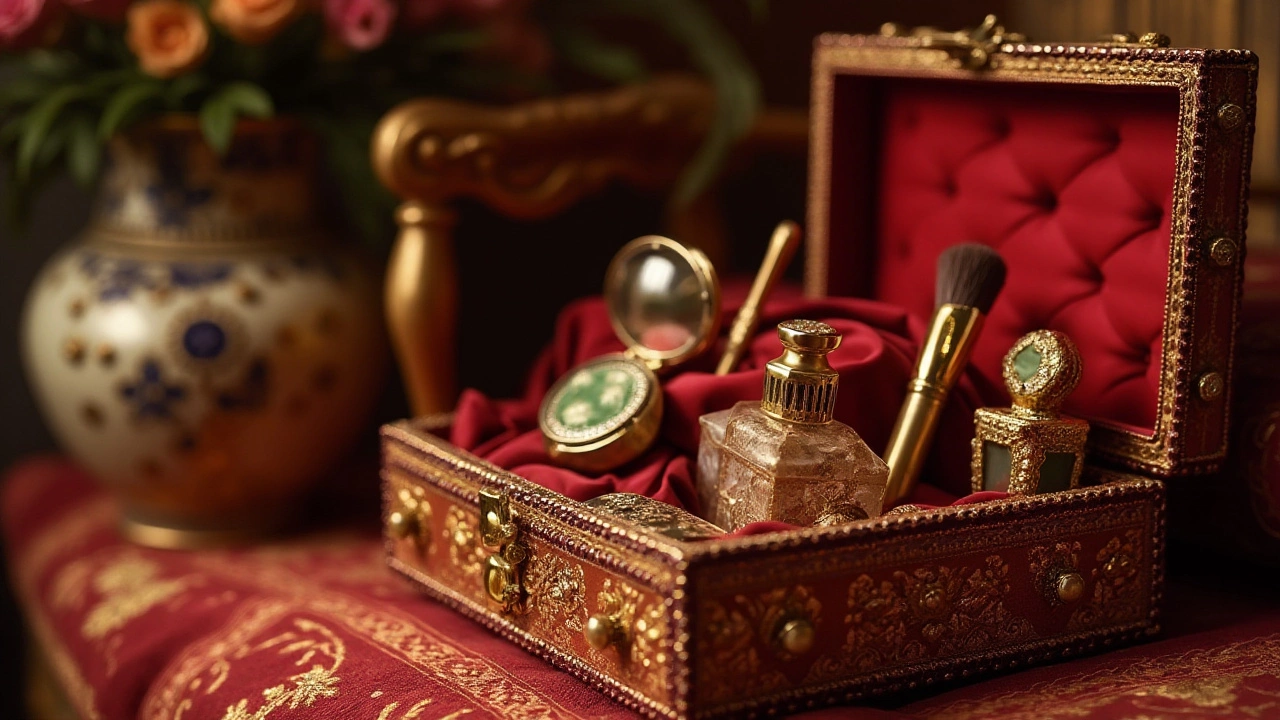
Luxury makeup isn't just about a label or a price tag—it's an experience that loves to blur the line between art and science. In the shimmering world of high-end cosmetics, makeup becomes more than just a tool for enhancing one’s appearance; it becomes a status symbol, a statement of sophistication and indulgence.
The quest for the most expensive makeup brand often leads us through a tantalizing array of enchanting beauty experiences. From foundations that promise a flawless finish to lipsticks encased in jewel-like packaging, these products often captivate with both their performance and prestige. But what makes them truly special, and is it all about the brand name?
This article takes you on a journey through some of the priciest players in the world of beauty, providing not just a list of brands, but insight into why these products are seen as worth the splurge by many. Join us as we unravel the luxurious allure of makeup’s elite and explore whether these coveted products live up to their luxurious labels.
- Understanding Luxury Makeup
- Top High-End Brands
- What Drives the Price?
- Consumer Perspectives on Expensive Cosmetics
Understanding Luxury Makeup
Luxury makeup is not just about the aesthetics or the brand name—it’s a sensorial journey into the realm of elegance and sophistication. These premium beauty products are carefully crafted with high-quality ingredients, state-of-the-art technologies, and exquisite packaging that sets them apart from the rest. When exploring the appeal of luxury cosmetics, one must first understand the complexities that lie within these opulent creations. The formula of high-end makeup often includes rare extracts, cutting-edge technology, and is a result of intensive research and development. The commitment to quality often translates to longer-lasting wear, unique textures, and a refined color palette that mass-market products may struggle to achieve.
Take, for instance, the meticulous process of creating a high-end foundation. Brands like La Prairie and Sisley invest not only in advanced skincare benefits such as anti-aging properties and sun protection but also in developing formulas that provide an unparalleled premium finish. It's about infusing skincare elements into cosmetics, so wearing makeup becomes an indulgent experience that benefits your skin rather than just embellishing it. Many of these products undergo rigorous dermatological testing to ensure a gentle application. This dedication to excellence is one reason why the expensive makeup segments are so appealing.
"People will stare. Make it worth their while." – Harry Winston
Packaging plays a significant role in defining the allure of luxury cosmetics. Often designed by renowned artists or crafted with fine materials, these packages are collectors’ items in their own right. Whether it's a gold-plated lipstick tube or a powder compact embedded with crystals, the visual and tactile experience amplifies the perceived value of the product. Such attention to detail breathes exclusivity, promising a coveted status if you display such an item on your vanity.
Moreover, as the global cosmetics industry expands, consumer awareness about sustainability and ethical production has nudged luxury brands to prioritize eco-friendly practices, delivering their extravagant offerings with a conscience. Many high-end brands are committed to cruelty-free production and sustainable sourcing of ingredients. For instance, brands like Chantecaille and Aveda focus on clean beauty principles, ensuring that their products are not only luxurious but also ethical.
When investing in luxury makeup, it’s not uncommon for consumers to form a stronger emotional connection with the product. The mystique around high-end brands often breeds a loyalty that transcends the mere use of the product; it becomes part of the consumer's identity. Whether it’s Chanel’s iconic red lipstick or Tom Ford’s luxurious eyeshadow quads, these products carry symbolic value, often tied to beloved cultural icons and moments in beauty history.
In essence, understanding luxury makeup requires recognizing the nuances of quality and artistry that go into crafting these indulgences. It's about appreciating the balance between science and beauty, between substance and style, that these high-end brands strike, offering more than just cosmetics—they offer an experience.

Top High-End Brands
In the world of luxury cosmetics, certain brands have ascended to the top, drawing in consumers with promises of elegance, effectiveness, and the allure of exclusivity. These brands are not just about beautifying the surface; they are about delivering a holistic experience that involves extraordinary formulations, often backed by scientific research and years of innovation. One such leader in this opulent category is La Prairie, renowned for its Swiss Cellular Science which brings together the best of biotechnological advancements and natural resources. La Prairie's commitment to luxury extends beyond its scientifically-formulated skincare to its opulent packaging, which often features metal accents and glass that feels like art in one’s hand.
Another stalwart in the realm of high-end brands is Clé de Peau Beauté, a Japanese brand known for infusing its products with rare ingredients and cutting-edge technology. Their products are celebrated not only for their aesthetic appeal but for delivering on claims like radiance-boosting, hydration, and anti-aging effects. The brand's dedication to crafting excellence is visible in its cult-favorite concealer and the luminous quality of its foundations, praised frequently in beauty circles.
“Clé de Peau Beauté is not just a brand; it’s a way to redefine your beauty standards, offering a sense of mastery over aesthetic elegance,” writes beauty editor Carmen Zhang, highlighting the brand’s influence in the industry.Besides these, Chanel, Hermès, and Dior offer luxurious makeup lines that reflect the same meticulous detail seen in their fashion houses. Hermes, relatively new to makeup, made waves with their Rouge Hermès lipsticks, a collection characterized by extremely high-quality pigments and a price tag that reflects the craftsmanship the brand prides itself on. Each piece is refillable, which makes it not only an investment in luxury but a commitment to sustainability, a value increasingly important to today’s consumer.
These expensive makeup brands aren't merely selling product; they promise a narrative, a piece of the legendary beauty heritage that they’ve long built. The pricing often reflects exclusive formulations, an element of rarity - say, Chanel’s limited-edition releases, and intricate packaging that turns every purchase into a truly luxury experience. The combination of artistry, history, and technological prowess makes these brands icons not only amid their loyal followings but also in the beauty industry at large. It's not just about creating a demand for uniqueness but sustaining the allure of rarity in an ever-evolving market. Truly, investing in these brands is like purchasing a piece of beauty history, embedded in glamour and unparalleled craftsmanship.

What Drives the Price?
The allure of expensive makeup brands often lies in the intricate dance between craftsmanship, quality, and exclusivity. These brands spare no expense in ensuring their products stand out, not just in look and feel but also in the prestige that comes with ownership. One of the primary factors driving the high cost of these products is the ingredients. High-end brands often use rare and precious ingredients that promise superior results. For example, some luxurious skincare and makeup items incorporate 24-karat gold, diamonds, or rare botanicals known for their anti-aging properties. This isn't just about adding bling; these elements are believed to enhance skin benefits, adding to their allure and justifying the price tag.
Another core reason behind the soaring prices is the extensive research and development invested in creating innovative and effective formulas. Brands like La Prairie and Sisley Paris have been famously known for their cutting-edge research in skin science. This innovation comes at a cost, often involving years of research and testing to ensure efficacy and safety. High-end brands pride themselves on delivering visible results, which is a significant selling point for consumers willing to invest in their beauty regimen. The sophisticated technology and patented ingredients unique to these products are closely guarded secrets that set these brands apart from their more accessible counterparts.
"Luxury is in every detail, from the first touch to the last drop," says beauty expert Caroline Hirons, emphasizing the meticulous attention that luxury brands give to even seemingly minute details.Packaging also plays a pivotal role in the pricing of luxury cosmetics. The outer beauty of a product is not just superficial; it's an extension of the brand's identity and values. Exquisite packaging often involves collaborations with renowned designers or crafted from opulent materials such as leather or gold-plated detailing. This not only enhances the visual appeal but also creates a sensory experience every time the product is used, making the consumer feel special and indulged.
The limited edition runs and exclusivity drive the prices further up. Brands often release limited quantity products, sometimes in collaboration with celebrities or artists, making them collectible items. The scarcity adds to the desirability and allows brands to justify the premium costs. Last but certainly not least, the heritage and brand legacy significantly contribute to the valuation. Names like Chanel, Dior, and Tom Ford carry a historic weight, a legacy of luxury and trust that has been built over decades. Owning a product from such a storied brand is more than just about using cosmetics—it's about being a part of an exclusive club.

Consumer Perspectives on Expensive Cosmetics
In the realm of luxury cosmetics, opinions among consumers are as varied as the shades in a designer eyeshadow palette. Many find themselves asking if the investment in high-priced products truly pays off. For some, the allure of expensive makeup lies not only in the perceived quality and performance but also in the experience of indulgence that accompanies such purchases. It's about more than just the product itself; it's the sensation of luxury and the satisfaction of owning something extraordinary.
One particular group of consumers, often labeled as beauty connoisseurs, vouches for the superior formulations and rare ingredients found in these high-end products. They argue that the research and innovation behind these brands justify the price points. For instance, when ingredients like diamond dust, rare oils, or age-defying peptides are involved, the final product promises results that more budget-friendly alternatives might not deliver.
Others are drawn by the prestige of a brand's name or the iconic status some products achieve. Owning a piece of beauty history, like the distinctive lipstick shades from luxury brands such as Chanel or Dior, can be a form of self-expression and an homage to a long-standing fashion legacy. It's this magnetic pull of prestige that keeps them coming back for more.
However, it is important to acknowledge the skepticism that exists. Many consumers question whether the higher cost is justified by the actual benefits and improvements on the skin. This skepticism is amplified by the presence of mid-market beauty brands offering quality products without the hefty price tag. A significant part of the consumer base remains undecided, continuing to balance their desires for opulence with their practical, everyday needs.
"There’s a perceived value in luxury beauty," says renowned beauty editor Jane Johnson, "but the real test is if it makes you feel amazing, and sometimes, that's worth every penny."
Interestingly, a survey conducted by a leading beauty magazine revealed that 42% of consumers feel that packaging influences their purchase of luxury cosmetics. Luxury brands often invest in captivating packaging design, which not only enhances the product's aesthetic appeal but also accentuates the feeling of exclusivity and value. The tactile pleasure of a weighty, polished compact can be an indulgence in itself.
For many, the emotional connection to luxury makeup is no less significant. Products from expensive brands often become treasured possessions, accompanied by fond memories of special occasions. This emotional resonance adds another layer of value to the investment, making the purchase more about self-care and less about conspicuous consumption. In an increasingly hectic world, the importance of these moments of escapism cannot be overstated.
 Hair Care
Hair Care